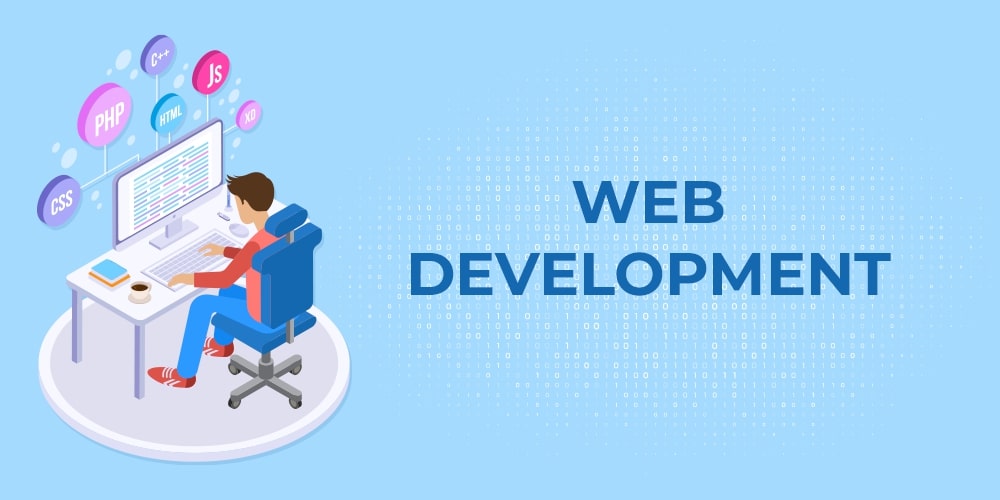Internship in NuukMedia

Taking part in this company is something I never could have imagined at the time. The internship was a totally adequate way for me to feel what it is like at work and find out if a given career path was the right way of the direction for me. I think my life journeys are marked by this internship, which boosted by academic and professional growth and showcased my knowledge in it’s practical domain. This is where I provide you with my internship experience highlighting the application process, and my duties, responsibilities and skills achieved, the challenges that I faced, what I enjoyed and the final impact. I happened to find NuukMedia through the website ‘Edy365’, which searches for internships commensurate with individual areas of interest. I was looking for internship in web development field and I wrote a motivation letter which talked about my skill set and what I would add. Luk, CEO of NuukMedia immediately answered to my motivation letter. Following his acknowledgement, I had online meeting during which he enlightened me about my tasks and he gave an overview of the company’s operations. I got a project to do together with another intern where we built a website for an affiliate link. The website required users to input their email address and name, upon which it automatically generated a profile on https://nuukmedia.spp.io/signup, giving them a personalized affiliate link. We applied HTML and CSS programming languages in building the website and we used PHP for the database. Undoubtedly, this internship equipped me with a new skill: database construction. It was the most challenging of all the things I ever did because I am just entering my second year of study of programming and databases are new to me. On the positive side, I felt encouraged by the workers in the company because if I had a problem, they were there to help me. This company excels in communication, being strongly patient with interns and expressing the sincere warmth towards us. Whenever we faced any question or the concept turned out to be difficult, Luk managed to arrange a meeting with colleagues who helped us generously with the answers to those questions as well as taught us a lot of new information. Particularly noteworthy was their consideration in arranging meetings with team members fluent in our native language, Latvian, facilitating clearer comprehension and enhancing our learning experience. Ultimately, I suggest picking up the internship offered by this company if your aim is to enhance your skills and obtain new information in the field. Undoubtedly, there will be rough rides in the beginning, however, with time you will get the hang of it and will find yourself enjoying this internship. Thanks to this internship, I’ve gained so much knowledge in database management, expanded my website development skills and I now know that I want to pursue web development in the future. I must express my deepest gratitude to Luk, the CEO and founder of NuukMedia, who was so nice to us and so patient with us! Post by Zane Miķelsone
Networking for the iGaming Industry: The Key to Online Success

The iGaming industry (including online gambling, sports betting and public casinos) has grown exponentially in recent years. With increased competition and the importance of digital marketing, using effective link building techniques has become key to success on the internet. The iGaming industry has been growing in recent years due to technological advancements, internet access and the proliferation of mobile devices. Due to increased competition and the emergence of new operators, companies in this industry must have a strong digital marketing strategy to stand out in the growing market. Link Building: The Role of SEO in iGaming In the world of SEO, link building is considered one of the cornerstones of improving a website’s ranking in search engines. Search algorithms (such as Google) require high-quality links to the site and interpret them as a sign of relevance and authority. In the online gaming industry, where websites compete for the most important keywords, an effective link building strategy can make the difference between being a market leader or not being recognized. Different countries have different laws regarding online gambling, including consumer preferences and customs. A one-size-fits-all approach to link building may not be effective. This is where link building comes in. Focused on organizations in specific markets such as Spain, Brazil, Germany, France, USA, Italy, Portugal, Nordic countries, Netherlands, Romania, we can offer a personalized approach to each individual market. The Importance of Building Local Connections Link building is very important in the iGaming industry. This means getting backlinks from websites in the country where the iGaming site operates. Links from local sites are more important and are more valued by search engines for users in the same area. This can improve your country’s SERP (Search Engine Results Pages) ranking and thus increase traffic. Reputable link building organizations in the iGaming space must understand the importance of quality content. Creating relevant and relevant content is a great way to attract organic and valuable links from other websites. By creating marketing strategies such as informative content, betting tips, game reviews, and industry-related articles, iGaming sites can establish themselves as reliable sources of information and attract valuable links. Social media also plays an important role in the link building process in the iGaming space. Sharing relevant content and building good relationships with stakeholders, customer journey mapping b2b and other relevant sites can increase your business visibility and get you a step closer to success. The Evolution of Link Building in the iGaming Industry Link building in the iGaming industry has changed dramatically over the years. In the past, aggressive tactics such as buying large links and adding fake links were often used in an attempt to influence search engine rankings. However, with changes in search engines and newer uses like Google Penguin, these efforts have gotten worse and become less effective. The iGaming industry needs to adapt and adopt better, more sustainable link building methods. Today, the focus of the iGaming industry is on creating quality products that are highly beneficial to users. A dedicated iGaming link building center is responsible for identifying sites that link to related sites and building specific links. This includes collaborations with partners, news stories, gaming news, and other websites related to the iGaming niche. Social networking also plays a small role in the link building process. Sharing relevant and interesting content on social media can capture the attention of a broad and diverse audience, leading to more mentions and links from other websites and their influencers. Also, it’s important to keep up with changes in search engines and trends in the iGaming industry. SEO is an ever-evolving process, and building effective links requires a solid understanding of best practices and a consistent mindset to keep up with changes. In order to be successful in iGaming link building, it is important for organizations and professionals to take a holistic and strategic approach. This includes analyzing competitors, identifying relevant backlink opportunities, and creating compelling content that encourages others to link. A constant focus on building real relationships with other sites and influencers is also important to making sure the relationships you build are good and sustainable. Link building is an important strategy for iGaming businesses to succeed in the digital competition. Ethical practices, focus on quality product development, and innovative strategies adapted to specific markets are key to Link iGaming’s growth. Leading organizations in the field face challenges and opportunities to deliver smart and effective solutions that help iGaming sites build a strong presence, reach new audiences and promote their business globally. Post By – Giovanna C.
The Old World of Link Building

In the early days of search engine optimization (SEO), link building techniques played an important role in determining a website’s ranking in search results. Back then, Google’s algorithm was smaller and easier to manipulate, so link building was a very popular way to improve your rankings. Before Building Links: The Importance of Great Links A few years ago, a website’s ranking was largely determined by the number of links it pointed to. Search engines see these links as a vote of trust and authority, and think that the more links a website gets, the more important it is to users. This has led to the rise of questionable link building techniques, such as bulk buying links from questionable videos and engaging in link exchanges. Link Building Consultants and Their Role In the past, most of these consultants took a risky approach and focused solely on link numbers. However, it needs to be pointed out that not all link building consultants do it wrong. Some sites actively link to other sites and provide resources to attract links. Global SEO Agency: Identifying New Markets and Opportunities At that time, expanding overseas markets was a profit strategy for many companies, and language optimization was a key factor. Spanish SEO professional agencies help businesses connect to relevant websites in that language, they can reach more people and increase traffic. The Evolution of Link Building: From Quantity to Quality As search algorithms became more sophisticated, Google and other engines began judging link quality based on quantity. Variations like “Penguin” and “Panda” changed the SEO landscape, penalizing sites that used illegal link building techniques and ensuring those with high-quality, organic links. This paradigm shift has caused many websites to reevaluate their link building strategies and take a more sustainable and meaningful approach to their target audience. The relationship structure in “ancient times” was not the same as it is today. In the past, the quantity of connections mattered, and timing was more important than quality. Link building consultants and SEO agencies around the world play a major role in the quest for better rankings. However, with the development of search algorithms, the focus has shifted to the importance and quality of links, making link building an ethical practice based on user value. To succeed in today’s SEO environment, it’s important to employ a link building strategy that focuses on building relevant and solid links elsewhere. Post By Giovanna C.
How Ahrefs and Nuuk Media can rank you first on google searches

Learn how Ahrefs.com and NuukMedia.com can help you rank first on Google search results. From keyword research to backlink building, this article will guide you through the steps to optimize your website for SEO success. In today’s digital age, having a website is not enough to attract potential customers. With millions of websites on the internet, it can be challenging to stand out from the crowd. To succeed, you need to rank high on Google search results, and that’s where SEO comes in. SEO, or search engine optimization, is the practice of improving your website’s visibility and ranking on search engines. Two powerful tools that can help you achieve this are Ahrefs.com and NuukMedia.com. In this article, we will explore how these two tools can help you rank first on Google searches. 1: Keyword research One of the essential aspects of SEO is keyword research. Keywords are the words or phrases that people enter into search engines when looking for information, products, or services. By optimizing your website for the right keywords, you increase your chances of ranking high on Google search results. Ahrefs.com is an excellent tool for keyword research. It allows you to find the most popular keywords in your niche, analyze their search volume and competition, and find related keywords that you may not have thought of. With this information, you can create content that targets the keywords your potential customers are searching for. 2: On-page optimization Once you have identified the keywords you want to target, you need to optimize your website’s pages for them. This includes optimizing your page titles, meta descriptions, header tags, and content. Ahrefs.com can help you audit your website and identify areas where you need to improve your on-page optimization. It also offers suggestions on how to optimize your content for specific keywords. NuukMedia.com is another excellent tool for on-page optimization. It provides a comprehensive analysis of your website’s pages and offers suggestions on how to improve them. With NuukMedia.com, you can optimize your website’s pages for maximum SEO effectiveness. 3: Backlink building Backlinks are links from other websites that point to your website. They are an important factor in SEO because they signal to search engines that other websites consider your content valuable and trustworthy. The more high-quality backlinks you have, the higher your website will rank on search engines. Ahrefs.com is a powerful tool for backlink analysis. It allows you to analyze your website’s backlink profile, find new backlink opportunities, and track your competitors’ backlinks. With this information, you can develop a backlink building strategy that will help you rank higher on Google searches. NuukMedia.com can also help you with backlink building. It offers link building services that can help you acquire high-quality backlinks from authoritative websites in your niche. 4: Content creation Content is king in SEO. It is what attracts visitors to your website, engages them, and ultimately leads to conversions. Ahrefs.com can help you with content creation by providing you with ideas for new content, analyzing your competitors’ content, and showing you what content is performing well in your niche. NuukMedia.com can also help you with content creation by providing you with high-quality, SEO-optimized content that is tailored to your target audience. 5: Monitoring and reporting SEO is an ongoing process, and it is essential to monitor your website’s performance and make changes as necessary. Ahrefs.com and NuukMedia.com both offer monitoring and reporting tools that allow you to track your website’s ranking, traffic, and backlinks. With this information, you can make informed decisions about how to improve your website’s SEO and achieve higher rankings on Google search 6: Technical SEO Technical SEO refers to the optimization of your website’s technical elements to improve its visibility and ranking on search engines. This includes optimizing your website’s loading speed, mobile responsiveness, site structure, and more. Ahrefs.com can help you with technical SEO by identifying technical issues that may be affecting your website’s ranking and providing suggestions on how to fix them. NuukMedia.com can also help you with technical SEO by providing website optimization services that can help you improve your website’s performance and ranking on search engines by acquiring the backlinks you need. 7: Local SEO If you have a local business, it is essential to optimize your website for local SEO. This includes optimizing your website for local keywords, creating local content, and optimizing your Google My Business profile. Ahrefs.com can help you with local SEO by providing you with local keyword ideas, analyzing your competitors’ local SEO strategies, and tracking your local search rankings. NuukMedia.com can also help you with local SEO by providing you with local SEO services that can help you rank higher on local search results and attract more customers to your business. 8: Tools Ahrefs.com and NuukMedia.com are two powerful tools that can help you rank first on Google searches. From keyword research to backlink building, content creation, and technical SEO, these tools offer a wide range of features that can help you improve your website’s visibility and ranking on search engines. By using these tools, you can develop a comprehensive SEO strategy that will help you achieve long-term success and attract more customers to your website or business. 9: Optimization Tips While Ahrefs.com and NuukMedia.com are powerful tools for SEO, there are also some optimization tips you can follow to improve your website’s ranking on Google searches. Here are some tips: By following these optimization tips, you can create a comprehensive SEO strategy that will help you rank first on Google searches and attract more customers to your website or business. 10: Strategy You can create a comprehensive SEO strategy that will improve your website’s visibility and ranking on search engines. Whether you are a small business owner or a digital marketer, optimizing your website for SEO is essential for attracting more customers and achieving long-term success. With the help of Ahrefs.com and NuukMedia.com, you can take your website’s SEO to the next level and achieve higher rankings on Google
The History of Link Building and Its Importance for Building Backlinks

Link building is a fundamental SEO practice that involves building quality links to your site from other sites on the web. These quality links, known as backlinks, are essential for improving the domain authority of your site and, consequently, your ranking in search results. However, link building hasn’t always been such a common and accepted practice. Let’s take a look at the history of link building and understand why it’s so important for building backlinks. The history of link building: Links have always been a fundamental part of the internet, but the notion of deliberately building links to improve search engine rankings is relatively new. In the early days of the internet, link building was not a deliberate strategy. Website owners linked to other sites they found interesting or useful, and links were exchanged in a more organic and natural way. However, as search engines like Google began to emerge and gain popularity in the late 1990s, website owners began to realize the importance of links for improving their search rankings. Before search engines became so sophisticated, people relied on directories and catalogs to find relevant sites. These directories included a list of links to related sites, but the quality of these links wasn’t a significant consideration. In the early 2000s, Google introduced the PageRank algorithm, which considered the quality of inbound links to a site in its search engine ranking. This led to an increase in the number of inbound links to sites, but many of these links were low quality and weren’t relevant to the site’s content . This led to the emergence of “black hat” link building techniques, which aimed to build low-quality links in large quantities (link farming is a common practice erroneously used even today). As search engines became more sophisticated, they began penalizing sites that used these “black hat” link building techniques. In response to these penalties, link building strategies began to shift towards more natural and organic tactics. From then on, instead of trying to manipulate search rankings with spammy links, SEO professionals began adopting a more ethical approach to link building, focusing on creating high-quality, relevant content that would naturally attract links from other sites. Tactics like guest posting, broken link building, and outreach to relevant websites became more common, and there was a greater emphasis on building relationships and earning links rather than simply acquiring them. This led to the emergence of “white hat” link building techniques, which involved creating high-quality content and engaging with other sites in an effort to obtain valuable inbound links. The importance of link building for building backlinks: Link building is a critical component of building backlinks for any website or online business. Backlinks, also known as inbound links, are links from other websites that point to your site. They are important because they signal to search engines that other websites consider your content to be valuable and relevant. In turn, search engines are more likely to rank your site higher in search results. However, building backlinks isn’t just a matter of quantity. The quality of the links is equally important. Search engines consider the relevance of the content on the source site, the domain authority of the source site, and the relevance of the link anchor text when determining the quality of the link. Therefore, building backlinks involves identifying relevant and high-quality sites that can provide valuable and relevant inbound links to your site. Additionally, backlinks can help increase the exposure of your site and build relationships with other sites on the web. Backlinks can attract traffic to your site from other sites, allowing you to reach a wider audience and increase brand awareness. Additionally, backlinks can lead to partnerships and collaborations with other sites in the future. By using effective link building strategies and focusing on creating high-quality content, you can achieve your SEO goals and build a successful online presence. -Post by Thamiris Campos
How Artificial Intelligence is changing SEO as we know it

Artificial Intelligence (AI) is changing the way we think about search engine optimization (SEO) and content creation. While human-generated content has traditionally been the backbone of SEO, recent advancements in natural language processing (NLP) have allowed AI algorithms to generate high-quality content that is optimized for search engines. AI-generated content has several advantages over human-generated content. Firstly, it can be created at a much faster rate than human-generated content, which can help websites publish new content more frequently and keep up with changing search engine algorithms. Additionally, AI algorithms can analyze vast amounts of data to identify trends and patterns that humans may not be able to identify. Informational websites, such as blogs and news sites, are taking advantage of this scenario. While some people may be skeptical of AI-generated content for these types of businesses, this technology has come a long way in recent years. Modern NLP algorithms can generate high-quality articles on a wide range of topics, using data from a variety of sources to create content that is accurate, informative, and engaging. In addition to generating the content, AI is also being used to optimize existing content for search engines. For example, algorithms can analyze website data to identify areas where the website can improve its search engine rankings. This can include optimizing titles, meta descriptions, and other on-page elements to improve relevancy and readability. While AI is transforming SEO in many ways, it’s important to note that human expertise is still critical. AI algorithms are only as effective as the data they’re fed and the insights they’re programmed to recognize. Skilled human professionals are still needed to create content strategies, evaluate data, and make decisions based on the insights generated by AI algorithms. Regarding article creation, human writers bring a level of creativity, nuance, and personalization to content creation that AI algorithms cannot perfectly replicate (yet). Additionally, AI-generated content can sometimes be formulaic and repetitive, which can negatively impact user engagement and search engine rankings. To summarize, AI sounds “too robotic”. In conclusion, AI is transforming the way we think about SEO and content creation. While human-generated content will always have a place in SEO, AI-generated content can help websites publish high-quality, optimized content at scale, and keep up with changing search engine algorithms, if the tech is applied correctly! As AI technology continues to evolve, we can expect to see more applications of this technology in the world of SEO and content creation. – Post By Lucas Rasnesvski
What does rel=”noreferrer noopener” mean and how does it affect SEO?

What does rel=”noreferrer noopener” mean and how does it affect SEO? The ‘rel=”noreferrer noopener”’ attribute is used to indicate that a link should not be able to pass on any information about the user or the referring page to the linked page. Specifically, ‘noreferrer’ instructs the browser not to send the ‘Referer’ HTTP header, which contains information about the referring page, while ‘noopener’ instructs the browser not to allow the linked page to access the window.opener object, which can be used to manipulate the referring page. The ‘rel=”noreferrer noopener”’ attribute can improve security and privacy by preventing the linked page from accessing sensitive information, such as the URL or cookie data, from the referring page. This can be particularly important when linking to external sites that may have malicious intent. Additionally, if your website has a strong focus on security and privacy, using ‘rel=”noreferrer noopener”’ may help improve your site’s overall reputation and credibility, which can have a positive impact on search engine rankings over time. target=”_blank” ‘target=”_blank”’ is an HTML attribute that can be added to a hyperlink (<a> element) to specify that the link should open in a new window or tab when clicked, rather than replacing the current page. This attribute is commonly used when linking to external websites or documents, as it allows the user to maintain their current context while still accessing the linked content. However, it’s important to note that using ‘target=”_blank”’ can also present security risks if the linked content is malicious or if it uses phishing techniques to trick the user into revealing sensitive information. Therefore, it’s generally recommended that any link generated to a new tab with ‘target=”_blank”’ be linked with ‘rel=”noreferrer noopener”’ thus avoiding any vulnerability to any external link. rel=”noreferrer” and SEO From an SEO perspective, using ‘rel=”noreferrer”’ can have an impact on how search engines attribute link equity to the linked website. If a link to your website has ‘rel=”noreferrer”’ applied to it, search engines may not be able to identify where the link came from, which could affect how much value they assign to it. One of the ways to get the attention of other webmasters is to link to their sites. All webmasters check their Google analytics daily and especially the ‘referral traffic’. When they see traffic to a website, they’ll probably check it out and share the page on social media, follow the author, or even decide to return the favor with a backlink. This is good for SEO and is actually something that Google recommends as a valid way to get links from other sites. When you have the noreferrer tag attached to your links, you’re missing out on a great opportunity to leverage your site, because their traffic won’t show up as a ‘Referrer’ in Google Analytics, and other webmasters won’t know you linked them. The reason this issue has become popular is that WordPress adds the ‘noreferrer’ tag by default to all outgoing links configured to open in a ‘new tab’. However, in most cases, using ‘rel=”noreferrer“’ is not necessary for SEO purposes, and it should only be used when there is a legitimate reason to protect the privacy of the referrer, such as when linking to a secure HTTPS page from a non-secure HTTP page. If this article sounds complicated for you and your team, get in touch here. That way we can help you without complications. Post by Zilka Dianne
The Importance of Technology for Large Companies

Technology has a significant importance in our society and is increasingly essential in our everyday lives. main reasons why technology is so important: • Facilitates Communication: Technology allows people to communicate easily, regardless of distance. We have access to various forms of communication, such as e-mail, instant messaging, videoconferencing, social networks, among others. • Improves efficiency: Technology allows tasks to be completed faster and more efficiently. Productivity software, process automation and online tools make work more agile and organized. • Contributes to economic development: Technology is an important engine of economic growth. Companies that invest in technology are more efficient, competitive and innovative. With the advancement of technology, companies are increasingly dependent on it to achieve their goals and stand out in the competitive market. Large companies, in particular, have a lot to gain from implementing technology into their day-to-day operations. One of the main ways that technology can benefit large companies is through automation. With the use of software and automated systems, they can reduce the time spent on repetitive tasks and free up resources for more strategic tasks. This can result in greater efficiency and productivity, as well as a reduction in costs. Technology can improve communication and collaboration between teams, especially in companies with geographically distributed teams. Another benefit of technology is data collection and analysis. Large companies generate a large amount of data, and technology can help them collect, store and analyze this data to gain valuable insights. This can lead to improvements in areas like marketing, sales, customer journey mapping b2b, customer service and more. However, to make the most of technology, large companies need to be willing to invest in it. This could mean spending money on new systems and software, hiring experienced technology professionals, and providing training to existing employees. link-building Large companies need to be aware of the latest trends and advances in technology to ensure they are using the best tools and techniques available. Link-building, for example, is an important digital marketing technique that helps companies improve their positioning in search engines and increase their visibility on the Internet. Several companies like Nuuk Media offer link-building services to help companies achieve these goals. Link building is a digital marketing strategy that involves obtaining external links that point to a website, with the aim of improving the authority and visibility of that website in search engines, such as Google. External links, also known as backlinks, are seen by search engines as a kind of “vote” of confidence or relevance to the site being linked. The more quality external links a website has, the higher it can appear in search results. seo consultant There are several techniques that can be used, including creating high-quality and relevant content, getting links from directories, forums and social media, exchanging links with other relevant websites, and participating in affiliate programs. The main objective of link building is to improve the authority and visibility of a website in search engines such as Google. This is done by obtaining external links, also known as backlinks, that point to the website in question. Search engines like Google use complex algorithms to determine a website’s relevance and authority for a given search query. The more relevant, high-quality external links a website has, the greater its authority and visibility in search engines. Technology plays a key role in our society, improving efficiency, communication, the economy. Technology is essential for large companies that want to compete and thrive in today’s marketplace. With automation, collaboration, data analysis and other tools and techniques available, companies can improve their efficiency, productivity and overall performance. And link-building is an important digital marketing technique that can help companies increase their online visibility and reach more potential customers. Post By Giovanna Bernardo
How Google penalties work in SEO

How Google penalties work in SEO Search engine optimization (SEO) is an essential part of digital marketing. It’s the practice of optimizing a website to rank higher in search engine results pages (SERPs). However, achieving high rankings is not as easy as it seems. It requires a lot of effort, time, and expertise. One of the most significant challenges that SEO experts face is avoiding Google penalties. Google is the most widely used search engine globally, with over 90% market share. Therefore, optimizing for Google is critical for any website. However, Google has a strict set of guidelines that webmasters must adhere to, failing which they risk being penalized. Google penalties can have a significant impact on a website’s traffic and rankings. In this article, we’ll discuss how Google penalties work in SEO. What are Google Penalties? Google penalties are manual or algorithmic actions taken by Google against websites that violate their webmaster guidelines. Manual actions are taken by Google’s human reviewers, while algorithmic penalties are applied automatically by Google’s algorithms. The most common types of Google penalties are manual actions, where a human reviewer has found a website to be violating Google’s guidelines. Manual penalties are of two types- site-wide penalties and partial penalties. A site-wide penalty affects the entire website and can result in a complete de-indexing from Google’s search results. A partial penalty, on the other hand, affects only a specific section of the website or a specific page. Algorithmic penalties, as the name suggests, are automated penalties that are applied by Google’s algorithms. Algorithmic penalties can be triggered by a variety of factors, including low-quality content, keyword stuffing, thin content, duplicate content, spammy backlinks, and more. When a website is hit by an algorithmic penalty, its rankings drop significantly, and it can take a long time to recover. How Do Google Penalties Work? Google penalties are designed to discourage webmasters from engaging in spammy or black-hat SEO practices. These practices include keyword stuffing, buying links, cloaking, hidden text, and other manipulative techniques. When Google detects a website engaging in such practices, it takes action to penalize the website. Google penalties work by reducing a website’s visibility in search engine results pages. When a website is penalized, its rankings drop, and it becomes harder for users to find the website. In some cases, a website may even be removed from Google’s search results altogether. Google penalties can have a severe impact on a website’s traffic and revenue. Websites that rely heavily on search engine traffic can suffer significant losses if they are penalized by Google. Therefore, it’s crucial for webmasters to avoid violating Google’s guidelines and to take corrective action if they are penalized. How to Check for Google Penalties? Webmasters can check if their website has been penalized by Google by using Google Search Console. Google Search Console is a free tool that allows webmasters to monitor their website’s performance in Google’s search results. If Google has applied a manual action against a website, webmasters will receive a notification in Google Search Console. Webmasters can also use third-party tools to check if their website has been hit by an algorithmic penalty. These tools analyze a website’s backlink profile, content, and other factors to determine if it has been penalized by Google’s algorithms. How to Recover from Google Penalties? Recovering from Google penalties can be a challenging and time-consuming process. The first step is to identify the reason for the penalty and to take corrective action. If the penalty was due to a manual action, webmasters need to fix the issue and submit a reconsideration request to Google. If the penalty was due to an algorithmic update, webmasters need to identify the reason for the claims: Before taking any action to recover the claims, it is important to identify the reason behind it. If the due is due to manual action, Google will send a notification through Google Search Console indicating which rule was violated. If the bounty is due to an algorithmic update, it is necessary to perform a full site audit and identify problem areas. Post By Ana Luiza Palumbo
The differences between On-Page and Off-Page SEO

Search engine optimization (SEO) is the process of optimizing a website to improve its visibility and ranking on search engine results pages (SERPs). It involves a range of techniques and strategies that help search engines understand and rank a website’s content. Two primary components of SEO are on-page and off-page optimization. Both are essential for a successful SEO strategy, but they differ in terms of their focus and the techniques used. On-page SEO, also known as on-site SEO, refers to the optimization techniques that are implemented directly on a website’s pages. These techniques aim to make a website more search engine-friendly and improve its rankings on SERPs. The primary goal of on-page SEO is to make it easy for search engines to crawl, understand, and index a website’s content. Here are some of the key factors that are typically considered in on-page optimization: Off-page SEO, on the other hand, refers to the optimization techniques implemented outside of a website. Off-page optimization is all about creating signals of trust and authority for a website. The primary goal of off-page SEO is to improve a website’s popularity, reputation, and visibility on the internet. Here are some of the key factors that are typically considered in off-page optimization: While on-page and off-page optimization differ in terms of their focus and techniques, both are essential for a successful SEO strategy. In conclusion, on-page and off-page optimization are both essential components of a successful SEO strategy. On-page optimization focuses on optimizing a website’s content, structure, and technical aspects, while off-page optimization focuses on building signals of trust and authority for a website through external factors such as backlinks, social media, local SEO, brand mentions, and reviews. By implementing a well-rounded SEO strategy that incorporates both on-page and off-page optimization, website owners can improve their visibility, ranking, and ultimately drive more organic traffic to their sites! Post By Lucas Rasnesvski

